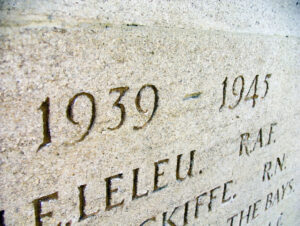 Advertising During Wartime Periods
Advertising During Wartime PeriodsThe war time period was a very unique period in British history. A time of great sadness, a time of great growth, of technological advancement and a time of great change.
Propaganda played a vital roll during the war, to boost moral and encourage people to enlist or serve the war effort.
After war was declared on 1st September 1939, the Ministry of Information was set up on 4th September.
When Operation Pied Piper was launched, encouraging children and vulnerable people to evacuate from cities to rural areas, particularly during the Blitz, a targeted campaign urged families to participate for their own safety.
Wartime advertising was unique, with billboard adverts and national advertising all to lift spirits and sell products.
During the war, the war office was advertising like crazy to recruit for:
Some of these would include departments set up for varying activities
Although the military departments above were cloaked in secrecy, there was non the less advertising surrounding them.
Wartime advertising needed to get recruits into secret government departments.
Before the Second World War, Britain had imported much of its food. When war broke out, it was necessary to grow more food at home and increase the amount of land in cultivation. With many male agricultural workers joining the armed forces, women were needed to provide a new rural workforce.
The land army was created and the UK governments marketing wheels started turning in order encourage everyone to do their part to grow us through the war.
Even the Tower of London started growing it’s own food in the moat.
Despite the war department marketing, businesses still continued to trade (some very successfully) and some excellent adverts were created that are now considered timeless:
Britain was in a situation whereby the realities of war could not be ignored.
However there had to be a normality to every day life. People drinking tea, people doing gardening, theaters putting on performances.
Nonetheless, wartime advertising ticked along. Commercial businesses were still investing in billboard adverts (as the TV era had not yet taken off) and in many cases; more than before due to the family spending being cut.
Rations were in place, therefore businesses had to ensure that their products were the strongest brand in the market.
Competition was also coming from the USA, with its booming manufacturing industry.
The US was not involved in the war until the very end, therefore imports of American brands were causing competition for UK products and goods.
The war brought on a change of attitude for the rising generation. A mindset that today you are here, but tomorrow you may not be.
For this reason, standards changed in terms of family, relationships, alcohol, cigarettes. The rise of equal equality as women got involved not just in wartime activities but in manufacturing.
Wartime advertising was seeing a change of Britains culture forever.
Some of the great adverts for gin, Guinness, whiskey cane our during the war years (or pre war) and are still used in advertising campaigns today. During this period, the views on alcohol changed and now, we are dealing with the ramifications.
In 2011 it is considered bad for your health to smoke. However the steady upward trend for smokers is concerning for today’s society.
Smoking is known to be bad for the health, however the tax revenues it produces means it is a welcome revenue stream for the government. If banned (no more smoking) the country would have big issues.
Smoking advertising (in the UK) is prohibited however during the war years it was big business. Players, swan matches, Hamlet were all major advertisers and with the changing of advertising rules this caused a hole that other adverts could plug.
Despite the ever present danger of the axis powers, Britain’s still needed to holiday. Whether this was to Vichy France, Jersey, Guernsey, Cornwall people still needed to get away from their normal lives.
In fact, the need for taking a break was more important for the reason of recharging and just enjoying life for what it is. Eating ice cream, picking cockles, going to Blackpool pleasure beach.
Wartime advertising was used to market these dreams.
During the war years, all areas of society were growing and businesses were cropping up all over the place. The war years saw Butlins holiday camps emerge and cheap holidays were now available to normal society.
For the 2 weeks holiday during the summer, thousands flocked to Butlins camps for sun, food and entertainment. Although things have changed in the decades that followed, Butlins did help kick start the holiday industry into the global franchise we see today.
Wartime advertising was where much of our modern advertising is based.
Choosing a marketing company is never easy, creativity is important during the wartime.